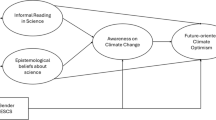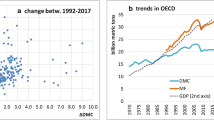Abstract
From the beginning, a science-based approach to questions of the future and – more precisely – thinking in alternative futures was in latent conflict with the official ideology of the German Democratic Republic, according to which East German society (and indeed, the whole humankind) was heading towards a communist future. During the 1960s, however, prognostics – the socialist type of futures studies – fitted well into the ambition of political leaders to foster economic development by promoting scientific-technological progress and adopting new management systems of the national economy. Prognostics was to a certain extent institutionalized and obtained in parts a cybernetic underpinning, but ideological constraints on knowledge never vanished. Moreover, prognostics had to distinguish itself clearly from “late-capitalist” futurology. With the reorientation of politics after Walter Ulbricht lost power, prognostics was cut back as was its cybernetic underpinning. As the official belief in the communist future eroded during the 1980s, there was no longer any room for governmental foresight. Futures thinking was taken up by the dissident movement.
Similar content being viewed by others
Notes
Despite the fact that the GDR had formally adopted a kind of multi-party system, we will throughout this paper use the word “party” only with reference to the SED – Sozialistische Einheitspartei Deutschlands (United Socialist Party of Germany).
Walter Ulbricht, General Secretary of the SED, was at that time the undisputed leader of party and state and had the final say in all political, economic, societal and even cultural matters.
If not indicated otherwise, all translations from German sources are done by the author.
During the 1960s, “futurology” was the most common and most popular term for the field of futures studies in West Germany (Eberspächer, 2019, p. 7f). We use it in the following.
For the early development of futures research mainly in the USA and its close relation to cybernetics, operations research and systems theory see e.g., Dayé (2020).
The “leading role of the party” was a principle that even went into the East German Constitution. It implied not, as the term could suggest, engagement and empowerment of party members. Quite on the contrary, it meant centralistic top-down control of all societal and economic processes by the leaders of the party, the ZK (central committee), the politburo and in final consequence by the general secretary.
Also, Klaus had to abandon his earlier position and to apologize: Cybernetics could never provide a universal theory of society (Kybernetik – eine neue Universalphilosophie der Gesellschaft?. Cybernetics – a new universal philosophy of society, 1973). – Cybernetics underwent a similar fate in the Soviet Union, see e.g. Gerovitch (2002) who describes the career of cybernetics from a bourgeois pseudo-science to a new guiding paradigm and finally to another empty phraseology.
The Council of Ministers was formally the government of the GDR, but actually all executive powers were concentrated in the hands of the politburo of the SED.
One has to bear in mind, that funding bodies and addressees of prognostics belonged exclusively to party and state administration, including the top management of large companies. (All large companies were VEBs, Volkseigene Betriebe, nominally owned by the people, in fact by the state.)
In 1970 e.g., Junge Welt, the newspaper of the communist youth organization FDJ, organized a competition among its readers to the question “What will you do on Thursday, January 6, 2000?” Famous scientists contributed materials on technological and social prospects. Readers submitted visions of everyday life: high technology combined with at that time present models of work and leisure. The winners were invited to participate in a banquet on January 8, 2000 – which really took place. Cf. Steinmüller & Steinmüller, 1999, p. 201 ff.
Game theory itself had a difficult standing within the debates about cybernetics.
The first-hand experiences of Liebscher, a philosopher and assistant to Klaus, specialized in cybernetics, are telling (Liebscher, 1995, p. 75ff). Called to give advice to “gods” from the politburo, he soon was cut short.
During the reform debates that lead to the Prague Spring, Radovan Richta, a philosopher, had devised an alternative developmental concept for a socialist society in the age of the scientific-technological revolution. In the perception of the East German politburo, all Czech reformers and their thought leaders were covert counterrevolutionaries, at best revisionists. West German futurists, in contrast, regarded the so-called Richta-Report (Richta et al., 1971) as a valuable contribution to conceptualize a “Third Way” beyond capitalism and oppressive Soviet bloc socialism. – Even more reason for East German ideologists to stigmatise such conceptions as counterrevolutionary.
Funny to see, that even with a cautious (and of course hypothetical) Mark to DM to Euro conversion assumption, the new German “citizen’s income” surpasses this income level.
When the Brundtland Report Our Common Future appeared in 1988, it was highly discussed in the Academy of Sciences, in the East German Writers’ Union as well as on conferences under the roof of churches – and last not least in the oppositional Umweltbibliothek (Library for Environmental Problems – that was in fact a meeting place for dissidents).
References
Andersson, J. (2018). The future of the World. Futurology, Futurists, and the struggle for the Post Cold War Imagination. Oxford: Oxford University Press.
Bauer, A., Eichhorn, W., Kröber, G., Schulze, H., Segeth, W., & Wüsteneck, K. D. (1968). Philosophie und Prognostik. Weltanschauliche und methodologische Probleme der Gesellschaftsprognose. Berlin: Dietz.
Bestuzhev-Lada, I. (1992). A short history of forecasting in the USSR, 1927–1990. Technological Forecasting and Social Change, 41, 341–348.
Böhm, K., & Dörge, R. (1959). Unsere Welt von morgen. Berlin: Neues Leben.
Bönisch, A. (1971). Futurologie. Eine kritische Analyse bürgerlicher Zukunftsforschung. Berlin: Akademie-Verlag.
Bönisch, A. (1985). Neuere Entwicklungstendenzen der bürgerlichen Zukunftsforschung. Deutsche Zeitschrift für Philosophie, 33(9), 779–787.
Cornelsen, D. (1989). Die Volkswirtschaft der DDR: Wirtschaftssystem – Entwicklung – Probleme. In W. Weidenfeld, & H. Zimmermann (Eds.), Deutschland-Handbuch. Eine doppelte Bilanz 1949–1989 (pp. 258–275). Bonn: Bundeszentrale für politische Bildung.
Dayé, C. (2020). Experts, social scientists, and techniques of prognosis in Cold War America. Cham: Palgrave Macmillan.
Dobrow, G. M. (1971). Prognostik in Wissenschaft und Technik. Berlin: Dietz.
Duller, M. (2016). Internationalization of Cold War Systems Analysis: RAND, IIASA and the institutional reasons for Methodological Change. History of the Human Sciences, 29(4–5), 172–190. https://doi.org/10.1177/0952695116667882.
Eberspächer, A. (2019). Das Projekt Futurologie. Über Zukunft und Fortschritt in der Bundesrepublik 1952–1982. Paderborn: Ferdinand Schöningh.
Eckardt, M. (Ed.). (2011). Die Semiotik von Georg Klaus (1912–1974). Zeitschrift für Semiotik, 33 (Heft 3–4).
Edeling, H. (1968). Prognostik und Sozialismus. Zur marxistisch-leninistischen Prognostik moderner Produktivkräfte in der Deutschen Demokratischen Republik. Berlin: Dietz.
Fuchs-Kittowski, K., & Piotrowski, S. (Eds.). (2004). Kybernetik und Interdisziplinarität in den Wissenschaften. Georg Klaus zum 90. Geburtstag. Abhandlungen der Leibnitz-Sozietät (Band 11). Berlin: Trafo.
Gerovitch, S. (2002). From Newspeak to Cyberspeak. A history of Soviet Cybernetics. Cambridge: MIT Press.
Göttner, R., & Fischer, P. (1973). Was soll – was kann Prognostik? Leipzig: Urania.
Hanke, E. (1984). Ins nächste Jahrhundert. Was steht und bevor? (2nd enlarged edition). Leipzig: Urania.
Heyden, G. (Ed.). (1968). Gesellschaftsprognostik. Probleme einer neuen Wissenschaft. Berlin: Deutscher Verlag der Wissenschaften.
Heym, S. (1959). Das kosmische Zeitalter. Ein Bericht. Berlin: Tribüne.
Klaus, G. (1961). Kybernetik in philosophischer Sicht. Berlin: Dietz.
Klaus, G. (1964). Kybernetik und Gesellschaft. Berlin: Deutscher Verlag der Wissenschaften.
Klaus, G. (1973). Kybernetik – eine neue Universalphilosophie der Gesellschaft? Berlin: Akademie-Verlag.
Klein, D. (1972). Futurologie und Zukunftsforschung. Untaugliches Mittel einer überlebten Gesellschaft. Berlin: Deutscher Verlag der Wissenschaften.
Kusnezow, B. G., & team of authors. (1972). Blickpunkt 2000. Wissenschaft und Zukunft. Perspektiven – Hypothesen und Probleme. Leipzig: Urania.
Lauterbach, H., & Söder, G. (1965). Planung – Wissenschaft oder Spekulation? Berlin: Deutscher Verlag der Wissenschaften.
Liebscher, H. (1995). Fremd- oder Selbstregulation? Systemisches Denken in der DDR zwischen Wissenschaft und Ideologie. In H. Hörz (Ed.), Selbstorganisation sozialer Prozesse, Band 2. Münster: LIT Verlag. http://www.heinzliebscher.de/Publikationen/Fremd_oder_Selbstregulation.pdf [7.12.2022].
Maier, H. (1977). Gibt es Grenzen des ökonomischen Wachstums? Berlin: Akademie-Verlag.
Mannheim, K. (1929). Ideologie und Utopie. Bonn: Cohen.
Meißner, H. (1971). Konvergenztheorie und Realität. Berlin: Akademie-Verlag.
Müller-Claud, W. (Ed.). (1971). (ed.). Wir werden es erleben. An der Schwelle zum dritten Jahrtausend. Leipzig: Urania.
Richta, R. (1971). Team Richta-Report Politische Ökonomie des 20 Jahrhunderts Die Auswirkungen der technisch-wissenschaftlichen Revolution auf die Produktionsverhältnisse. Frankfurt/M: Makol.
Rindzevičiūtė, E. (2016a). The power of Systems: How Policy Sciences opened up the Cold War World. Ithaca, London: Cornell University Press.
Rindzevičiūtė, E. (2016b). A Struggle for the Soviet Future: The Birth of Scientific Forecasting in the Soviet Union, in: Slavic Review 75, no. 1 (Spring 2016), 52–76.
Riska-Campbell, L. (2011). Bridging East and West: The establishment of the International Institute for Applied Systems Analysis (IIASA) in the United States Foreign Policy of Bridge Building, 1964–1972. Helsinki: The Finnish Society of Science and Letters.
Rose, G. (1974). „Industriegesellschaft“ und konvergenztheorie. Berlin: Akademieverlag.
Sachartschenko, W. (1954). Eine Reise in das Morgen. Berlin: Neues Leben.
Seefried, E. (2015). Zukünfte. Aufstieg und Krise der Zukunftsforschung 1945–1980. Berlin, Boston: De Gruyter.
Segal, J. (2001). Die Einführung der Kybernetik in der DDR. Begegnung mit der marxistischen Ideologie. In Dresdner Beiträge zur Geschichte der Technik und der Technikwissenschaften, 27, 47–75. Also available online at http://jerome-segal.de/Publis/Kyb-DDR.htm [7.12.2022]
Steinmüller, A., & Steinmüller, K. (1999). Visionen. 1900-2000-2100. Eine Chronik der Zukunft. Hamburg: Rogner und Bernhard.
Steinmüller, K. (2001). From anticipations of a Bright Future to Dissolution. Futures studies in the German Democratic Republic. In E. Nováky, V. R. Varga, & M. K. Köszegi (Eds.), Futures studies in the european Ex-Socialist Countries (pp. 64–72). Budapest: Futures Studies Centre. Budapest University of Economic Sciences and Public Administration.
Steinmüller, K. (2014). Aufstieg und niedergang der prognostik. Zur Geschichte der Zukunftsforschung in der DDR. Zeitschrift für Zukunftsforschung, Vol. 4 (urn:nbn:de:0009-32-40698).
Sydow, W. (Ed.). (1983). In die Zukunft gedacht. Wissenschaftler aus 6 Ländern entwickeln Ideen zu Wissenschaft und Technik. Berlin: Verlag Die Wirtschaft.
Tamm, I. J., Sawojski, J. K., & Kusnezow, B. G. (1969). Zukunft der Wissenschaft. Forschungsrichtungen und Prognosen. Leipzig: Urania.
Ulbricht, W. (1967). Die gesellschaftliche Entwicklung in der Deutschen Demokratischen Republik bis zur Vollendung des Sozialismus. Berlin: Dietz.
Funding
Not applicable.
Author information
Authors and Affiliations
Contributions
Not applicable.
Corresponding author
Ethics declarations
Ethics approval
Not applicable.
Consent to participate
Not applicable.
Consent for publication
Not applicable.
Competing Interests
The author has no relevant financial or non-financial interests to disclose.
Additional information
Publisher’s Note
Springer Nature remains neutral with regard to jurisdictional claims in published maps and institutional affiliations.
Rights and permissions
Springer Nature or its licensor (e.g. a society or other partner) holds exclusive rights to this article under a publishing agreement with the author(s) or other rightsholder(s); author self-archiving of the accepted manuscript version of this article is solely governed by the terms of such publishing agreement and applicable law.
About this article
Cite this article
Steinmüller, K. The Rise and Decline of Prognostics. Futures Studies, Ideology and the Sociology of Knowledge in the German Democratic Republic. Am Soc (2023). https://doi.org/10.1007/s12108-023-09570-7
Accepted:
Published:
DOI: https://doi.org/10.1007/s12108-023-09570-7




